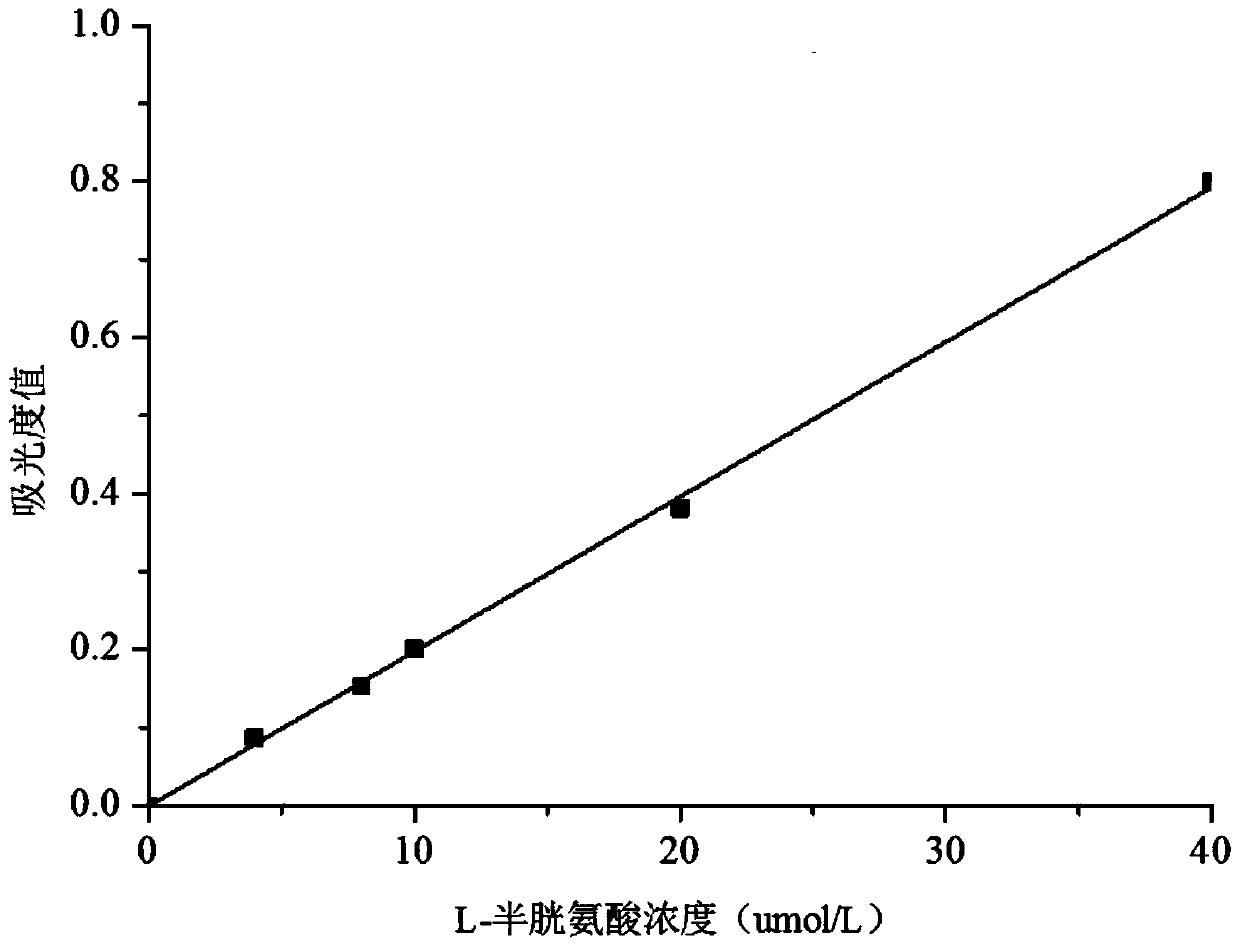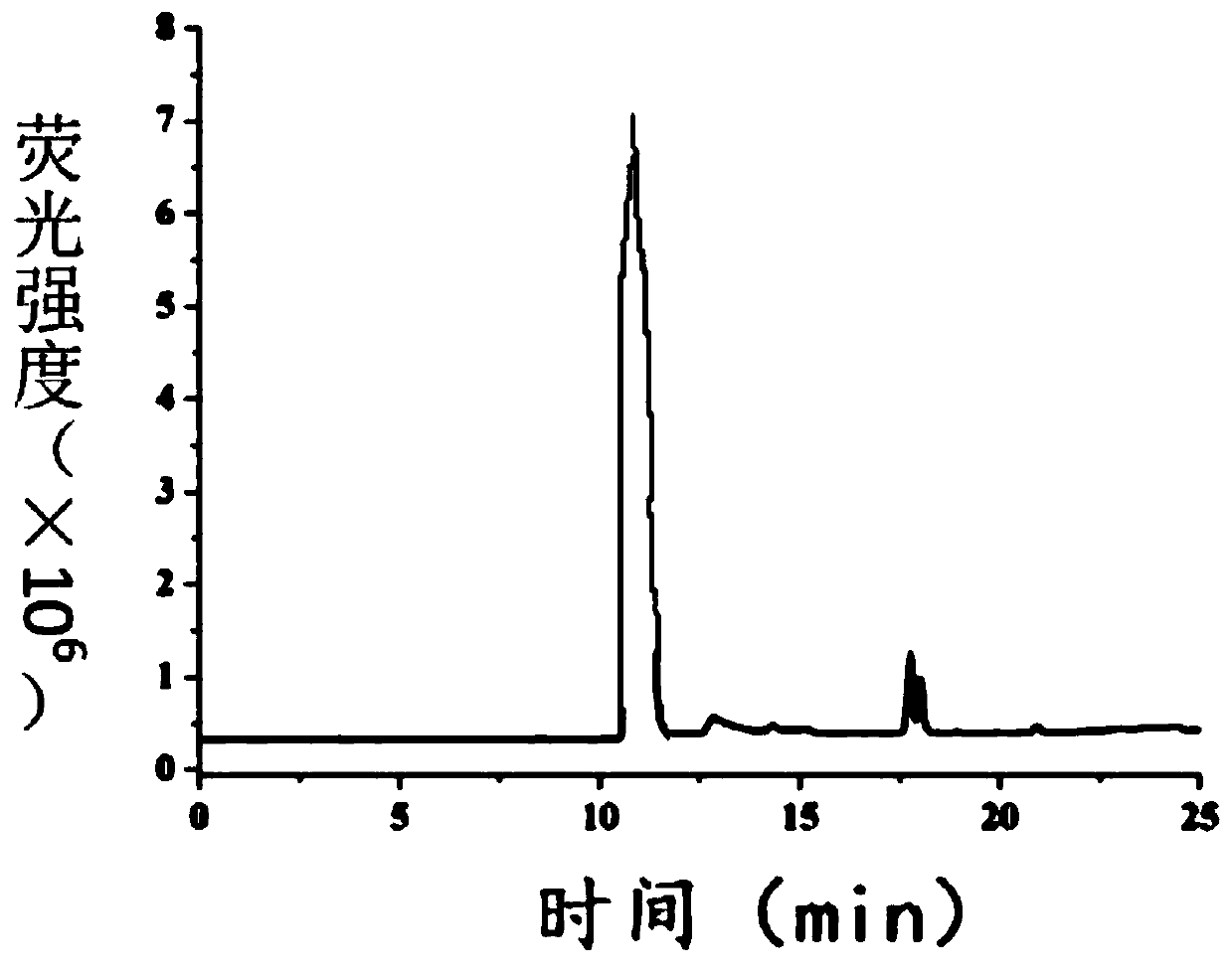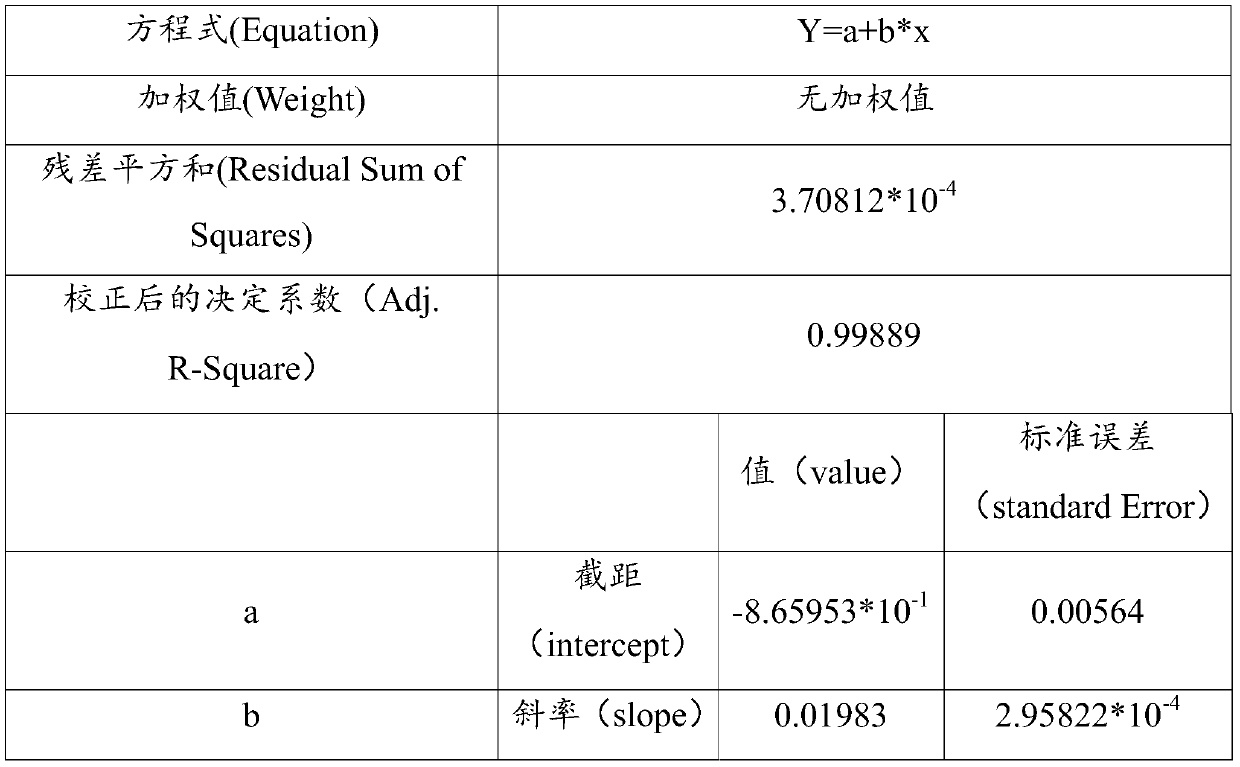Method of extracting and detecting L-cysteine in rice seedling tissues
A cysteine and extraction method technology, which is applied in the field of L-cysteine extraction and detection in rice seedling tissue, can solve the problem of large interference of color reaction, expensive detection equipment, complicated sample processing, etc. problem, to achieve the effect of significant color rendering, efficient and rapid detection, and strong operability
- Summary
- Abstract
- Description
- Claims
- Application Information
AI Technical Summary
Problems solved by technology
Method used
Image
Examples
Embodiment 1
[0026] Embodiment 1 of the present invention is: a method for extracting L-cysteine in rice seedling tissue, comprising the following steps:
[0027] (1) Take Xiangzaoxian No. 45 rice seedlings (purchased from Hunan Academy of Agricultural Sciences) cultivated by sand culture method for 15 days, wash the remaining sand grains on the roots of rice seedlings with clean water, and then blot the excess water on the roots. Be careful when absorbing water. Gently press, do not break the roots and leaves.
[0028] (2) Select and weigh the rice leaf or root tissue obtained in step (1), and quickly grind it into a uniform powder with liquid nitrogen in a mortar.
[0029] (3) Three groups of rice seedling leaf tissue powders of 0.13 g, 0.11 g and 0.13 g were weighed respectively.
[0030] (4) First add 4.0mL of 1% glacial acetic acid (to destroy the fibrous structure in the tissue) and grind for 5 minutes, then add 1.0mL of 1% trichloroacetic acid (to precipitate protein) and 95% eth...
PUM
 Login to View More
Login to View More Abstract
Description
Claims
Application Information
 Login to View More
Login to View More - R&D
- Intellectual Property
- Life Sciences
- Materials
- Tech Scout
- Unparalleled Data Quality
- Higher Quality Content
- 60% Fewer Hallucinations
Browse by: Latest US Patents, China's latest patents, Technical Efficacy Thesaurus, Application Domain, Technology Topic, Popular Technical Reports.
© 2025 PatSnap. All rights reserved.Legal|Privacy policy|Modern Slavery Act Transparency Statement|Sitemap|About US| Contact US: help@patsnap.com



